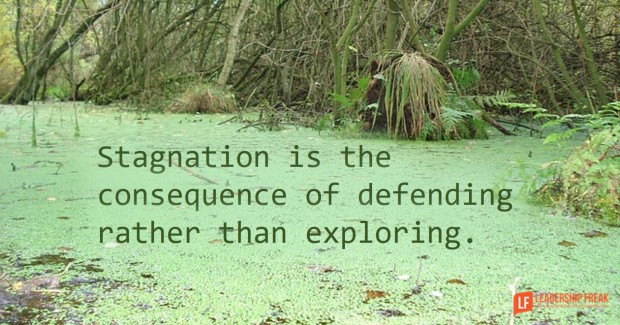Abraçar ou resistir à mudança? Esta mudança é a mudança que ocorre no exterior, com maior ou menor velocidade. É independente da vontade das organizações, está-se marimbando para as organizações.
Ao longo dos anos escrevo aqui sobre abraçar ou resistir à mudança. E sobretudo, sobre o papel das lideranças associativas em predispor as mentes para abraçarem a mudança e procurarem oportunidades.
"Human beings are resistant to many kinds of change. However, we are also a species driven by curiosity and programmed to seek out novelty. The difference between embracing and resisting change is rooted in our brain-body hardwiring. Evolution has resulted in a two-channel system, which is responsible for much of our response in times of uncertainty. The Survive Channel is activated by threats and leads to feelings of fear, anxiety, and stress. These triggers activate the sympathetic nervous system and, when working well, direct all attention toward eliminating the threat. By contrast, the Thrive Channel is activated by opportunities and is associated with feelings of excitement, passion, joy, and enthusiasm. These triggers activate the parasympathetic nervous system, allowing our mind to broaden its perspective and collaborate in new ways.Creating smart, fast change means preventing the Survive Channel from overheating while activating the Thrive Channel in sufficient numbers of people, leading to more innovation, adaptation, and leadership.Reflecting on recent stories of organizational change, no single lesson comes across as clearly as one related to leadership — specifically, the need for more of it from more people. Leadership as a behavior, not a position, has the capacity to meet the change challenge of today. There is a strong need to reconstruct the modern organization and create an environment that fosters more autonomy, participation, and leadership.The relative strength of the Survive Channel, combined with the emphasis on reliability and efficiency reinforced by traditional management systems, leads to organizations that generally overheat the Survive Channel and under-activate the Thrive Channel. Organizations that can pivot and change quickly require leaders who can both calm an overheated Survive and amplify Thrive, for themselves and others."
"The very first image that appeared in this book described experience as a ’sea of ceaseless change.’ I argued that organizing is about creating some patterned recurrence into that ceaseless change."

















